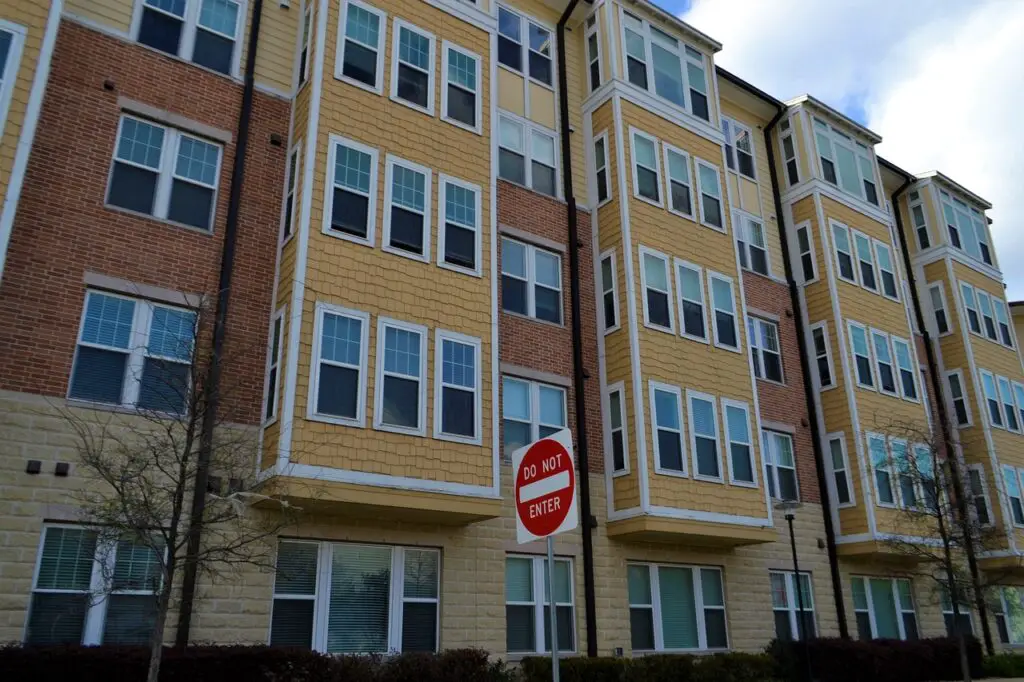Are you tired of struggling to find affordable housing? Look no further! In this comprehensive guide, you will discover a wealth of tips and tricks to help you navigate the challenging world of affordable housing options. Whether you are a student, a young professional, or a family on a budget, this article will provide you with valuable insights and resources to make your search for affordable housing a breeze. Say goodbye to endless hours spent scrolling through listings and let us show you the path towards finding a home that fits your budget and lifestyle.
Understanding Affordable Housing
Affordable housing is a term used to describe housing that is both available and affordable to individuals and families with limited incomes. It is a crucial aspect of ensuring that everyone has a safe and comfortable place to call home. Many people often struggle to find affordable housing that meets their needs, but with the right knowledge and resources, it is possible to navigate the process more successfully.
Defining Affordable Housing
Affordable housing refers to housing options that are affordable to households with low to moderate incomes. The cost of affordable housing is typically determined as a percentage of the household’s income, ensuring that it remains within their financial means. This percentage varies depending on the program and location, but generally, housing expenses should not exceed 30% of the household’s income.

Why Affordable Housing Matters
Affordable housing is vital for several reasons. Firstly, it provides stability and security, allowing individuals and families to establish roots and thrive in a community. By having affordable housing options available, it also helps to reduce homelessness and overcrowding, promoting healthier and more sustainable communities.
Affordable housing also plays a significant role in economic growth. When individuals and families have affordable housing, they are better able to allocate their financial resources towards other essential needs, such as food, healthcare, and education. This, in turn, helps stimulate local economies and promotes overall well-being.
Moreover, affordable housing helps create diverse and inclusive communities by allowing people from various income levels to live in the same area. It fosters social cohesion and provides opportunities for people from different backgrounds to interact, learn from one another, and build strong communities together.
Determining Your Housing Needs
Before embarking on the search for affordable housing, it’s important to assess your specific needs and preferences. This will help you narrow down your options and find the housing that best suits you. Here are some key factors to consider:
Assessing Your Budget
Start by determining how much you can afford to spend on housing. Take into account your monthly income, existing financial obligations, and anticipated expenses. This assessment will help you establish a budget that allows you to comfortably cover your housing expenses while also meeting other needs.
Considering Location and Accessibility
Think about the location that would be most convenient for you. Consider proximity to work, schools, healthcare facilities, and public transportation options. Being close to essential amenities can greatly enhance your quality of life and save you time and money in the long run.
Identifying Must-Have Features
Make a list of essential features and amenities that you require in your housing. This could include the number of bedrooms, parking, laundry facilities, or accessibility features if needed. Knowing what you absolutely need versus what would be nice to have will help you prioritize your search and find housing that meets your specific requirements.

Types of Affordable Housing
When it comes to affordable housing, there are various options available. Understanding these options will help you make informed decisions and choose the one that suits you best. Here are some common types of affordable housing:
Government Subsidized Housing
Government subsidized housing is a program in which the government provides financial assistance to make housing more affordable for low-income individuals and families. The government either directly owns or subsidizes private rental units, reducing the monthly rent to an affordable level.
Income-Restricted Apartments
Income-restricted apartments are rental units where the rent is capped at a certain percentage of the tenant’s income. These apartments are usually owned and managed by private landlords or nonprofit organizations, with income limits set by the government or other administering bodies.
Cooperative Housing
Cooperative housing involves a group of individuals who collectively own and manage a housing property. Each member has an equal stake in the property and contributes to its management and maintenance. Cooperative housing can offer affordable homeownership opportunities and a sense of community.
Section 8 Housing
Section 8 housing, also known as the Housing Choice Voucher program, provides rental assistance to eligible low-income individuals and families. Participants receive a voucher that covers a portion of their rent, and they are responsible for finding a suitable rental unit that meets program requirements.
Shared Housing
Shared housing involves multiple individuals or families sharing a single housing unit. This can help reduce overall housing costs by splitting rent and utilities. Shared housing arrangements can range from roommates sharing an apartment to co-living spaces designed for communal living.
Researching and Applying for Affordable Housing
Once you have determined the type of affordable housing you are interested in, it’s time to start researching and applying for available options. These steps will guide you through the process:
Conducting Online and Local Research
Begin by searching online housing resources and local classifieds for affordable housing listings in your desired area. Online platforms and apps make it easier than ever to browse available options and filter them based on your preferences.
Additionally, reach out to local housing advocacy organizations and nonprofit groups that specialize in affordable housing. They can provide valuable information and guidance on available resources and application processes.
Contacting Local Housing Authorities
Contact your local housing authority to inquire about affordable housing options in your area. Housing authorities often manage subsidized housing programs and can provide you with information on eligibility requirements, application procedures, and waiting lists.
Understanding Eligibility Requirements
Each affordable housing program has specific eligibility requirements based on factors such as income, family size, and citizenship status. Take the time to thoroughly understand the criteria to ensure that you meet the necessary qualifications.
Gathering Necessary Documentation
Prepare the necessary documentation to support your housing application. This may include proof of income, identification documents, and any additional paperwork specific to the housing program. Having these documents readily available will expedite the application process.
Submitting Applications
Once you have identified suitable housing options and gathered the required documents, submit your applications. Be aware that waiting lists for affordable housing programs can be lengthy, so it’s best to apply to multiple options to improve your chances of success.

Working with Real Estate Professionals
Real estate professionals can be valuable resources in your search for affordable housing. Their expertise and knowledge of the local housing market can help you navigate the process more effectively. Here are some ways to work with them:
Engaging with Real Estate Agents
Contact local real estate agents who specialize in affordable housing or rentals. They can guide you to available properties that match your needs and provide insight into the local market. Real estate agents are also knowledgeable about negotiation strategies and lease terms.
Seeking Assistance from Rental Agencies
Rental agencies can help connect you with available rental properties that meet your budgetary requirements. They often have access to a wide range of listings and can assist you throughout the application and leasing process.
Exploring Nonprofit Housing Organizations
Nonprofit housing organizations, such as Habitat for Humanity, offer affordable homeownership programs and provide valuable resources for individuals and families seeking housing assistance. These organizations often have partnerships with builders and lenders, making homeownership more accessible.
Utilizing Online Housing Platforms
The internet has revolutionized the way we search for housing, and online platforms can be powerful tools in finding affordable housing options. Here’s how to make the most of them:
Popular Online Housing Marketplaces
Utilize popular housing websites and mobile apps, such as Zillow, Trulia, or Apartments.com, to search for affordable housing options. These platforms allow you to filter results based on your budget, location, and specific requirements.
Using Filtering Options for Affordability
Take advantage of the filtering options provided by online platforms to focus your search on affordable housing. Set maximum rent limits and explore listings that fit within your budgetary constraints.
Setting Up Alerts for New Listings
Set up email alerts or push notifications on housing platforms to be notified of new affordable listings that match your criteria. This will ensure that you are among the first to know about available opportunities and can act quickly.

Financial Assistance Programs
Various financial assistance programs exist to help make housing more affordable. Familiarize yourself with these programs to determine if you qualify and to take advantage of the benefits they offer. Here are some common programs:
Housing Choice Vouchers (Section 8)
The Housing Choice Voucher program, commonly known as Section 8, provides rental subsidies directly to eligible low-income individuals and families. Participants can use their vouchers to rent housing from private landlords who agree to participate in the program.
Low-Income Homebuyer Programs
Low-income homebuyer programs aim to make homeownership more attainable for individuals and families with limited incomes. These programs often offer down payment assistance, subsidized mortgage options, and homebuyer education to help potential homeowners navigate the process successfully.
Rental Assistance Programs
Rental assistance programs provide financial aid to renters who are struggling to afford housing. These programs may offer rental subsidies, utility assistance, or emergency rental assistance to help individuals and families avoid eviction and maintain stable housing.
Tax Credits and Incentives
Tax credits and incentives may be available for developers and landlords who offer affordable housing. These programs aim to encourage the construction and maintenance of affordable housing units by providing financial benefits and incentives to those who participate.
Homeownership Programs
Homeownership programs, such as Habitat for Humanity, offer affordable housing opportunities for low-income individuals and families. These programs often involve sweat equity, where participants contribute their time and labor to the construction of their home alongside volunteers, making homeownership more affordable.
Alternative Housing Options
In addition to traditional affordable housing options, there are alternative housing models that may be worth considering. These options cater to specific needs and can offer unique advantages:
Subsidized Senior Housing
Subsidized senior housing is designed for older adults with limited incomes. These housing communities often provide a range of supportive services, such as meals, transportation, and social activities, tailored to the needs of seniors.
Tiny Houses and Micro-Apartments
Tiny houses and micro-apartments are compact living spaces designed to maximize functionality and minimize costs. These housing options are a popular choice for individuals seeking affordable and sustainable housing solutions.
Container Homes
Container homes involve repurposing shipping containers into livable housing units. These homes are often more affordable than traditional construction and offer an eco-friendly alternative with a modern and minimalist aesthetic.
Cohousing Communities
Cohousing communities are intentional communities in which residents share common facilities and resources, while also having private living spaces. These communities foster a sense of belonging and reduce the cost of living through shared expenses and responsibilities.
Roommate Matching Services
Roommate matching services connect individuals seeking affordable housing with potential roommates. By sharing the rent and utilities with others, individuals can reduce their housing expenses while also forming meaningful connections.

Tips for a Successful Housing Application
To increase your chances of securing affordable housing, consider the following tips when submitting housing applications:
Prepare Strong Personal References
Gather strong personal references who can vouch for your reliability, responsibility, and ability to maintain a tenancy. These references may include previous landlords, employers, or mentors who can attest to your character and financial stability.
Craft a Persuasive Application Letter
Write a persuasive application letter that highlights your enthusiasm for the housing opportunity and explains why you would be a great tenant. Emphasize your responsible behavior, stable employment, and willingness to comply with the terms and conditions of the lease.
Highlight Relevant Skills and Experience
When applying for cooperative housing or shared housing, highlight any relevant skills or experience that could benefit the community. For example, if you have experience in home repairs or gardening, mention how you can contribute to the maintenance and improvement of the property.
Submit Applications in a Timely Manner
Submit your housing applications as soon as possible. Affordable housing opportunities are often in high demand, and waiting lists can be long. By applying promptly, you increase your chances of being considered for available units before they are filled.
Negotiating Rent and Lease Terms
Negotiating rent and lease terms can help you secure more favorable housing conditions and save money. Here are some helpful considerations when negotiating:
Researching Average Rental Rates
Research average rental rates in the area to establish a baseline for negotiations. Knowing the market value of similar properties will help you determine what is a fair rental amount.
Understanding Tenant Rights
Familiarize yourself with tenant rights in your specific jurisdiction to ensure that you are well-informed during negotiations. Knowing your rights can provide you with leverage and protect you from unfair practices.
Negotiation Strategies
Approach rent negotiations with a friendly and respectful attitude. Be prepared to explain why you believe a lower rent or specific lease terms are fair and reasonable. Propose compromises that benefit both parties and be open to finding middle ground.
Lease Terms to Consider
In addition to rent negotiations, consider discussing lease terms that align with your needs. This may include the length of the lease, security deposit requirements, utilities, pet policies, and potential rent increases. By clarifying these details upfront, you can avoid misunderstandings and ensure a positive renting experience.
By understanding the various types of affordable housing, researching available options, utilizing online platforms, and exploring financial assistance programs, you can increase your chances of finding affordable housing that meets your needs. Moreover, by applying good communication and negotiation skills, you can further enhance your living arrangements and ensure a successful and enjoyable renting or homeownership experience. Don’t let the challenges of finding affordable housing deter you – with patience, persistence, and the right resources, you can find your ideal home without breaking the bank.

